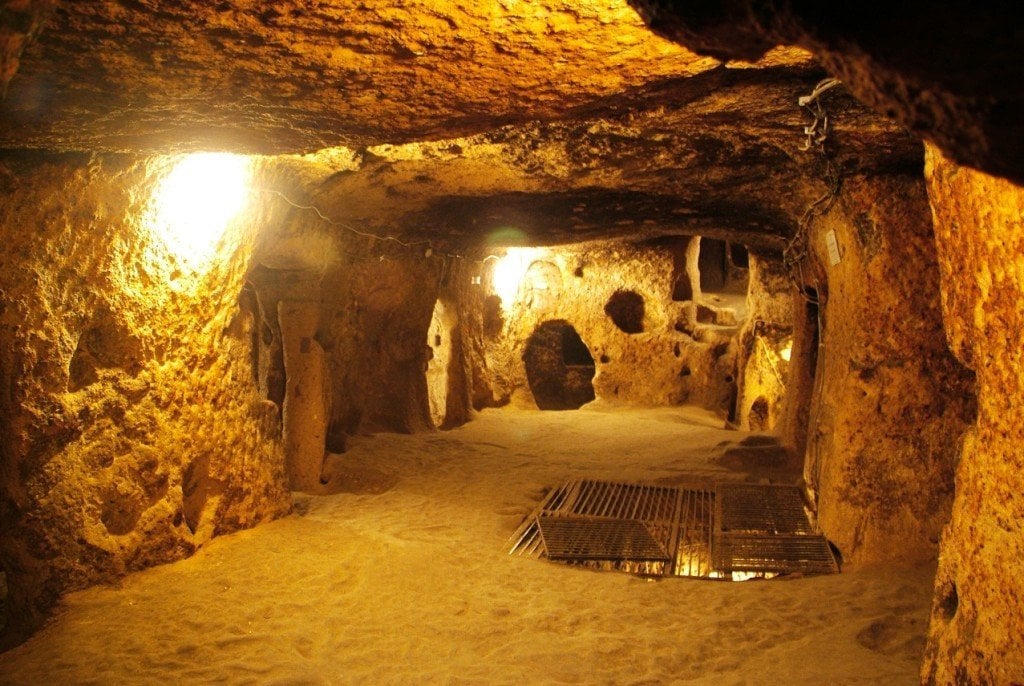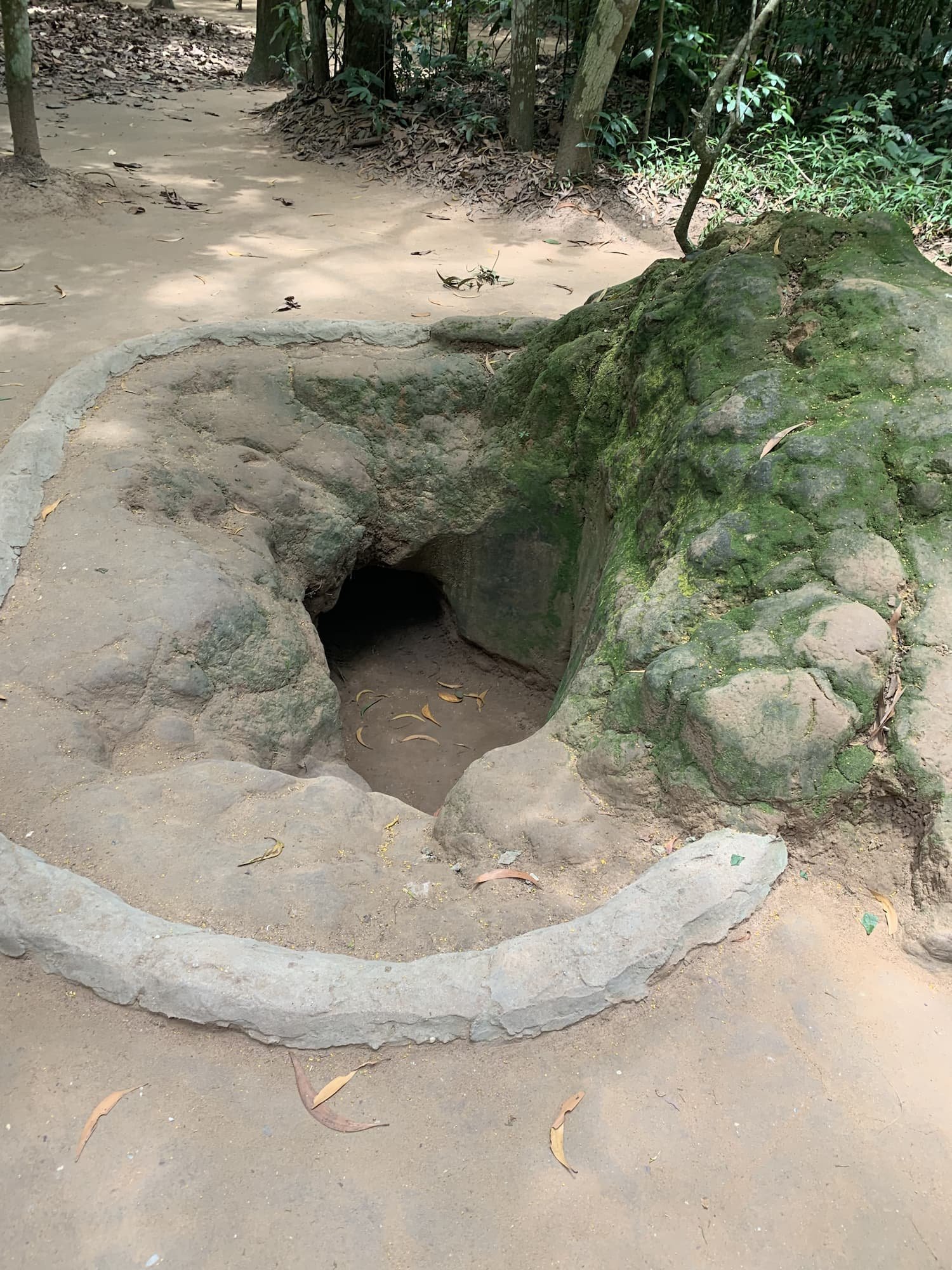Cu Chi Tunnels: Vietnam's Secret Underground City

Overview of Cu Chi Tunnels Vietnam
Cu Chi Tunnels History and Significance
In the past, you have served as a place where Viet Cong soldiers hid during the Vietnam War while also being used as communication and supply routes. The tunnels played a crucial role in the war, providing strategic advantages to the Vietnamese forces.
The network of tunnels was significant in the outcome of various military campaigns. If you visited the Cu Chi Tunnels, you would learn about the innovative tactics and resilience displayed by the soldiers who lived and fought in these underground passages.
Design and Structure of Cu Chi Tunnels
The Cu Chi Tunnels are known for their intricate design and structure. They feature a complex network of underground tunnels that were carefully planned and constructed. You can see various sections, such as living quarters, storage facilities, makeshift hospitals, and command centres interconnected through narrow passages.
The tunnels were designed to provide shelter and protection from bombings and enemy attacks. If you explore the tunnels, you will appreciate the resourcefulness and engineering skills of the people who built them.
Overall,
| Cu Chi Tunnels | |
|---|---|
| History | Significant role during the Vietnam War |
| Design | Intricate network of tunnels with various functions |
| Importance | Symbol of resilience and wartime strategies |

Cu Chi Tunnels Tourist Attractions
Underground Living Quarters
When you explore the Cu Chi Tunnels, you will be amazed by the underground living quarters that provided shelter for soldiers during the Vietnam War. These quarters were not just spaces to rest; they were strategically designed to offer protection and comfort amidst conflict.
The cramped conditions will give you a glimpse into the challenges faced by those who resided in these tunnels, highlighting their resilience and adaptability.
Trapdoors and Defense Mechanisms
As you venture through the Cu Chi Tunnels, you will encounter trapdoors and defence mechanisms that were ingeniously crafted to thwart enemy invasions. The intricate designs of these traps and mechanisms showcase the meticulous planning and tactical prowess of the Vietnamese soldiers.
Witnessing these defences firsthand will give you insight into the level of sophistication and resourcefulness displayed by the tunnel inhabitants.

Cu Chi Tunnels War Remnants and Artifacts
War Remnants at Cu Chi Tunnels
When you visit the Cu Chi Tunnels, you will encounter various war remnants that serve as poignant reminders of the conflict that once engulfed these tunnels. Bullet-ridden walls, remnants of booby traps, and other war artefacts scattered throughout the site offer a glimpse into the harsh realities faced by the soldiers who inhabited this underground network. These remnants testify to the perseverance and bravery of those who endured the tumultuous wartime conditions.
Historical Artifacts on Display
Throughout the Cu Chi Tunnels, you will find a curated display of historical artefacts that provide a deeper insight into the daily lives of the soldiers who fought in these tunnels. From weaponry and communication devices to personal belongings and makeshift living essentials, these artefacts offer a tangible connection to the past and the sacrifices made by those who called these tunnels home. Each artefact tells a story of resilience, innovation, and solidarity that defined the spirit of the tunnel dwellers.

Cu Chi Tunnels Guided Tours and Experiences
Guided Tours Exploring Cu Chi Tunnels
When you embark on a guided tour of the Cu Chi Tunnels, you will encounter firsthand the remnants of war that permeate the underground passageways. Bullet-ridden walls and remnants of booby traps showcase the harsh realities faced by soldiers in this intricate tunnel network.
As you traverse the tunnels, your guide will narrate stories of resilience and bravery that defined the soldiers' experiences during the Vietnam War. The historical significance of the Cu Chi Tunnels comes to life as you immerse yourself in the wartime narratives woven into these underground corridors.
Hands-on Experiences for Visitors
Delving deeper into the Cu Chi Tunnels, visitors can engage with historical artefacts that offer a tangible connection to the past. From handling weaponry and communication devices to examining personal belongings and makeshift living essentials, each artefact provides insight into the daily lives of tunnel dwellers.
By participating in hands-on activities such as crawling through narrow tunnel passages or learning about guerrilla warfare tactics, visitors understand the ingenuity and solidarity that sustained the soldiers within this subterranean world.

Cu Chi Tunnels Visitor Facilities and Amenities
Facilities Available at Cu Chi Tunnels Site
When you visit the Cu Chi Tunnels, you will have access to various facilities to enhance your experience. Restroom facilities are strategically located throughout the site for your convenience.
Additionally, there are designated rest areas where you can take a break and absorb the historical significance of the surroundings. Information boards are placed at key points to provide insights into the tunnel network's layout and functions, allowing for a deeper understanding of the site's history.
Amenities for Tourists at Cu Chi Tunnels
As a tourist exploring the Cu Chi Tunnels, you can enjoy several amenities to ensure a comfortable visit. Souvenir shops offer a range of items related to the tunnels and the Vietnam War, allowing you to bring home a piece of history. Refreshment stands are available, providing snacks and beverages to keep you energized during your tour.
Moreover, there are seating areas where you can relax and reflect on the historical revelations witnessed within the tunnels.
Cu Chi Tunnels Cultural and Educational Significance
Cultural Importance of Cu Chi Tunnels
When you explore the Cu Chi Tunnels, you immerse yourself in a site that played a significant role during the Vietnam War. The tunnels are not just physical structures; they represent a symbol of resilience, ingenuity, and wartime strategies employed by the Vietnamese.
As you wander through the tunnels, you can sense the history embedded in every inch of the underground network.
Educational Programs and Workshops at Cu Chi Tunnels
For visitors interested in delving deeper into the history and significance of the Cu Chi Tunnels, educational programs and workshops are available. These sessions offer valuable insights into the design and functions of the tunnel systems, as well as the strategic importance they held during the war.
Participants can engage in interactive learning experiences, gaining a profound understanding of the challenges faced by those who lived and fought in the tunnels.

Cu Chi Tunnels Preservation Efforts and Sustainability
Conservation Efforts for Cu Chi Tunnels
When exploring the Cu Chi Tunnels, you witness ongoing preservation efforts to maintain the site's historical significance. Conservation initiatives focus on protecting the tunnels from deterioration while safeguarding their authenticity. Through meticulous restoration work, the tunnels are preserved for future generations to learn from and appreciate.
Sustainable Tourism Practices at Cu Chi Tunnels
Visitors to the Cu Chi Tunnels engage in sustainable tourism practices aimed at minimizing environmental impact and preserving the cultural heritage of the site.
By promoting responsible tourism behaviours, such as waste reduction and respectful exploration of the tunnels, sustainable practices ensure that this historical landmark remains accessible and protected for years to come.

Conclusion and Visitor Recommendations
Visitor Tips for Exploring Cu Chi Tunnels
When you visit the Cu Chi Tunnels, you'll notice the concerted efforts to preserve and sustain this historic site. Conservation activities are diligently carried out to protect the tunnels from deterioration and maintain their authenticity. These preservation endeavors ensure that future generations can learn about and value the tunnels' significance.
As a visitor, you are encouraged to engage in sustainable tourism practices while exploring the Cu Chi Tunnels. By following guidelines for responsible tourism, such as minimizing waste production and respectfully exploring the tunnels, you contribute to the long-term protection of this cultural heritage site. Your participation in sustainable practices helps to ensure that the Cu Chi Tunnels remain accessible and well-preserved for years to come.
